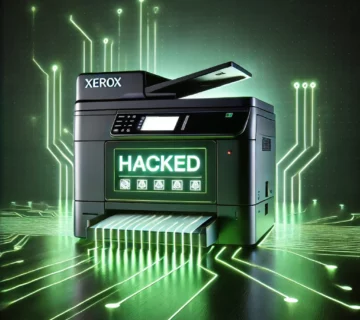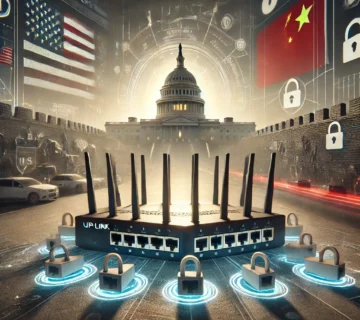NIST’s Quantum Standards: Why the Time to Upgrade Your Cybersecurity is Now
🎙️ Dive Deeper with Our Podcast!
Explore the latest on the NIST’s Quantum Standards: Why the Time to Upgrade Your Cybersecurity is Now with in-depth analysis.
👉 Listen to the Episode: https://technijian.com/podcast/nists-quantum-standards-why-the-time-to-upgrade-your-cybersecurity-is-now/
Subscribe: Youtube | Spotify | Amazon
Quantum computing is progressing faster than many realize, bringing unprecedented risks to modern cybersecurity. In response, the National Institute of Standards and Technology (NIST) released its first Post-Quantum Cryptography (PQC) standards in August 2024. These standards represent a pivotal milestone in protecting sensitive data from quantum-powered attacks, emphasizing the urgent need for businesses and federal agencies to modernize their cryptographic systems.
This article explores NIST’s quantum standards, their implications for cybersecurity, and how organizations can transition to a quantum-safe future.
Introduction to NIST’s Quantum Standards
The cybersecurity landscape is undergoing a transformation as quantum computing matures. While quantum computers promise incredible advancements in science, they also pose significant risks to traditional encryption methods. Recognizing this, NIST released its first set of PQC standards in August 2024 to protect data against future quantum-based attacks.
These standards culminate years of research, testing, and collaboration, addressing vulnerabilities in existing cryptographic systems. They highlight the urgency for businesses, federal agencies, and technology vendors to upgrade their systems to quantum-safe cryptography.
The Rising Threat of Quantum Computing to Cybersecurity
Quantum computers have the potential to solve complex mathematical problems exponentially faster than classical computers. This capability directly threatens encryption systems like RSA and ECC, which are the foundation of today’s secure communications.
Key Risks Posed by Quantum Computing
- Breaking Public-Key Encryption: Algorithms like Shor’s can crack RSA and ECC, exposing sensitive data.
- Future-Proofing Data: Even encrypted data today could be stolen and decrypted later by quantum systems.
- Identity Authentication Vulnerabilities: Digital signatures that secure identities can be undermined.
Organizations must act now to mitigate these risks by transitioning to quantum-resistant encryption methods.
What is Post-Quantum Cryptography (PQC)?
Post-Quantum Cryptography (PQC) refers to cryptographic algorithms that are resistant to attacks by quantum computers. Unlike traditional cryptography, PQC algorithms rely on mathematical problems believed to be insurmountable even for quantum systems.
Core Goals of PQC:
- Secure information exchanged over public networks (general encryption).
- Authenticate identities safely through digital signatures.
PQC bridges the gap between today’s cryptographic systems and a future dominated by quantum technologies.
Overview of NIST’s Newly Released PQC Standards
NIST’s PQC standards address vulnerabilities in traditional encryption methods by introducing four key algorithms designed for both encryption and digital signatures. These algorithms have undergone rigorous testing for resilience and practicality, ensuring they meet the needs of diverse applications.
The Four Key PQC Algorithms
1. CRYSTALS-Kyber
- Purpose: General encryption.
- Strengths: Fast operation and compact key sizes, making it efficient for network communications.
2. CRYSTALS-Dilithium
- Purpose: Digital signatures.
- Strengths: High-speed operations and robust security for identity authentication.
3. Sphincs+
- Purpose: Backup digital signature method.
- Strengths: Relies on hash-based structures for added security if vulnerabilities are found in other algorithms.
4. FALCON
- Purpose: Digital signatures.
- Strengths: Compact signature sizes and efficient performance, ideal for constrained environments.
Understanding the New Federal Information Processing Standards (FIPS)
NIST’s PQC standards have been formalized into Federal Information Processing Standards (FIPS):
- FIPS 203: Based on CRYSTALS-Kyber, now called Module-Lattice-Based Key-Encapsulation Mechanism (ML-KEM).
- FIPS 204: Based on CRYSTALS-Dilithium, renamed Module-Lattice-Based Digital Signature Algorithm (ML-DSA).
- FIPS 205: Built on Sphincs+, renamed Stateless Hash-Based Digital Signature Algorithm (SLH-DSA).
These changes simplify adoption and emphasize the standards’ applicability to diverse use cases.
Why Organizations Must Embrace Crypto-Agility
Crypto-agility refers to the ability of IT systems to adapt to new cryptographic standards without requiring a complete overhaul. This approach is critical for organizations to:
- Seamlessly transition to quantum-safe encryption.
- Maintain security during and after migration.
- Future-proof IT infrastructure against emerging threats.
The Role of Vendors in Implementing PQC
Vendors play a pivotal role in ensuring a smooth transition to quantum-safe systems. They must:
- Integrate NIST’s PQC standards into products.
- Provide firmware updates to enable crypto-agility.
- Ensure interoperability across systems and networks.
Crypto Discovery: The First Step in Migration
Organizations must first identify where cryptography is used within their systems. Automated tools can simplify this process by mapping cryptographic dependencies, enabling targeted upgrades.
Federal Agencies: Leading the Way in PQC Migration
Guided by federal policies such as the White House’s National Security Memo on Quantum and OMB’s roadmap for PQC migration, agencies are setting an example by prioritizing crypto discovery, planning, and implementation.
How Hardware Security Modules (HSMs) Support PQC
Hardware Security Modules (HSMs) ensure the secure storage and execution of cryptographic keys. Vendors must:
- Implement NIST’s PQC standards in HSMs.
- Offer firmware updates to align with FIPS-certified modules.
Practical Steps for PQC Adoption
- Conduct a Crypto Inventory: Identify all cryptographic use cases.
- Prioritize Updates: Focus on critical systems first.
- Collaborate with Vendors: Ensure compatibility with PQC standards.
- Test Implementations: Deploy standards in controlled environments before full-scale adoption.
Overcoming Challenges in Implementing PQC Standards
Common Challenges:
- Legacy system compatibility.
- Lack of technical expertise.
- Budget constraints.
Solutions:
- Leverage automated tools for crypto discovery.
- Invest in staff training and education.
- Partner with experts for seamless implementation.
How Technijian Can Assist with PQC Migration
Technijian specializes in helping organizations transition to quantum-safe cybersecurity solutions. With deep expertise in IT infrastructure and cryptography, we provide:
- Comprehensive crypto inventory and assessment.
- Seamless integration of NIST-compliant algorithms.
- Ongoing support for maintaining quantum resilience.
Technijian ensures your organization is prepared for the quantum future while minimizing disruption to current operations.
Frequently Asked Questions (FAQs)
1. What is Post-Quantum Cryptography?
Post-Quantum Cryptography (PQC) includes encryption methods resistant to attacks from quantum computers.
2. Why are NIST’s PQC standards important?
They provide a framework to secure sensitive data against future quantum-based threats.
3. What are the key PQC algorithms?
CRYSTALS-Kyber, CRYSTALS-Dilithium, Sphincs+, and FALCON.
4. What is the first step in PQC migration?
Conducting a crypto inventory to identify where cryptography is used in your systems.
5. How can Technijian help?
Technijian provides end-to-end support for adopting PQC standards, from planning to implementation.
Conclusion: The Quantum-Safe Future Starts Today
Quantum computing is not a distant threat—it’s here, and organizations must act now to safeguard their data. With NIST’s PQC standards available, the tools for a quantum-resilient future are within reach. Start your journey toward quantum-safe cybersecurity today with the right strategies and expert support.
About Technijian
Technijian stands at the forefront of managed IT services in Orange County, delivering dynamic solutions that empower businesses to stay competitive in an ever-evolving digital world. Based in Irvine, we proudly serve companies across Irvine, Anaheim, Riverside, San Bernardino, and Orange County with solutions that ensure seamless, secure, and scalable IT environments.
Our position as a trusted managed service provider in Irvine is built on our commitment to excellence and client-focused service. Whether you need IT support in Irvine or IT consulting in San Diego, our team of experts is equipped to align your technology with your business goals. We bring deep expertise in IT support in Orange County, managed IT services in Anaheim, IT infrastructure management, and IT outsourcing services, allowing you to focus on growth while we manage your technology needs.
At Technijian, we specialize in comprehensive, customizable managed IT solutions for businesses of all sizes. From cloud services and IT systems management to business IT support and network management, our services are crafted to enhance efficiency, protect data, and ensure robust IT security. With dedicated support across Riverside, San Diego, and Southern California, we’re here to keep your business operating smoothly and securely.
Our proactive approach includes disaster recovery, IT help desk support, and IT security services to safeguard your operations and minimize downtime. We offer a comprehensive range of services that adapt to your business, including IT support in Riverside, IT solutions in San Diego, and IT security solutions in Orange County—so your operations remain resilient, agile, and prepared for the future.
With Technijian, you gain more than just an IT partner—you gain a strategic ally committed to optimizing your IT performance and helping you thrive. Experience the Technijian advantage today with tailored IT consulting services, IT support services in Orange County, and managed IT services in Irvine that meet the demands of modern business.


